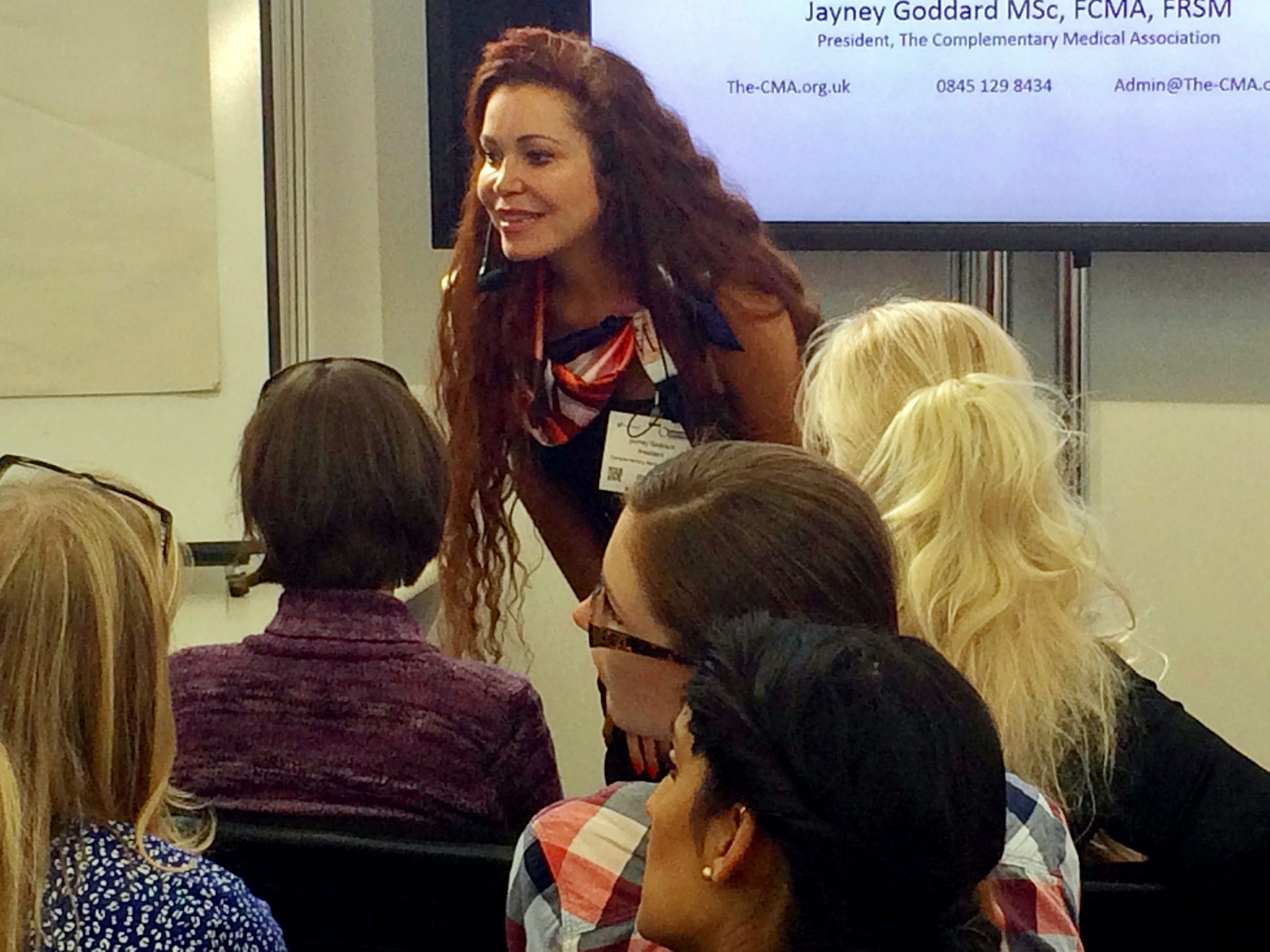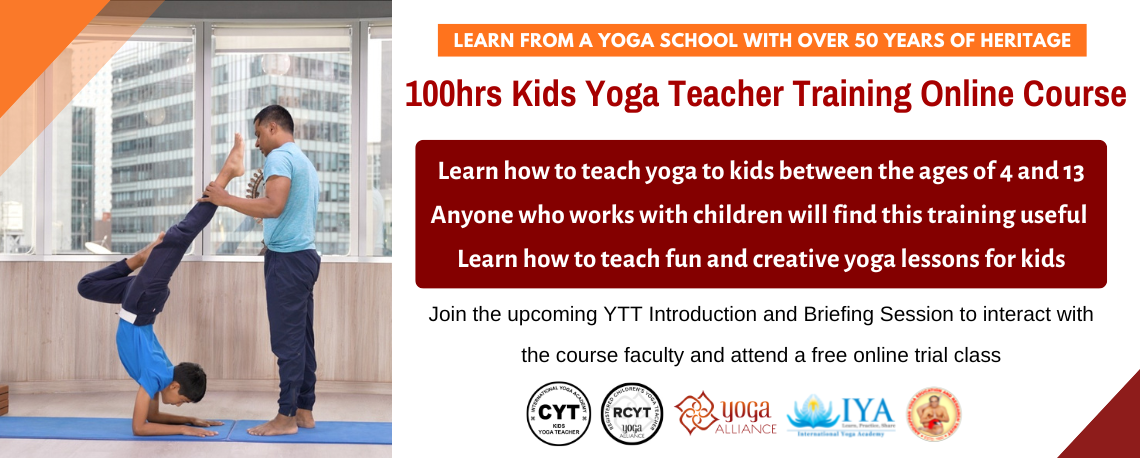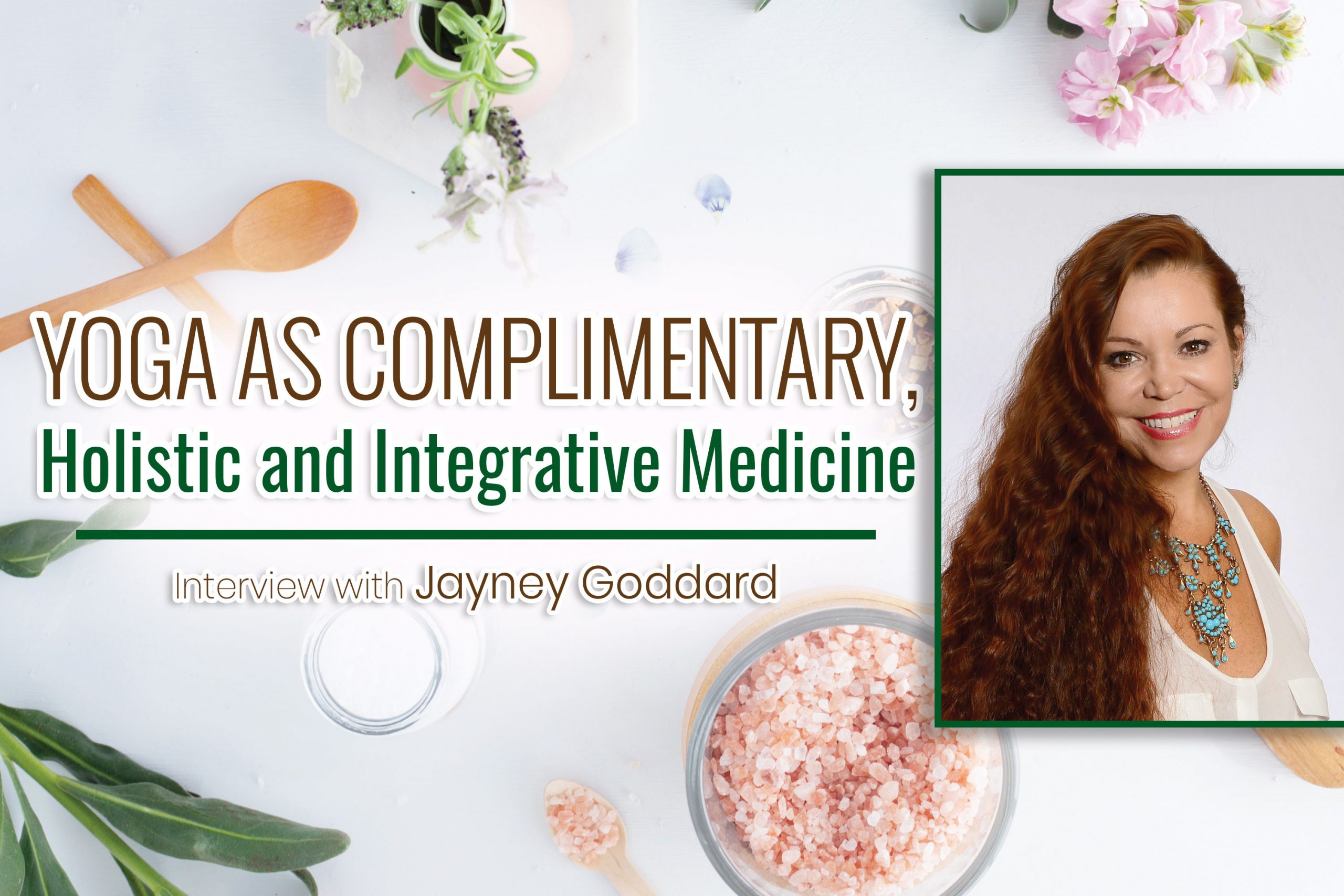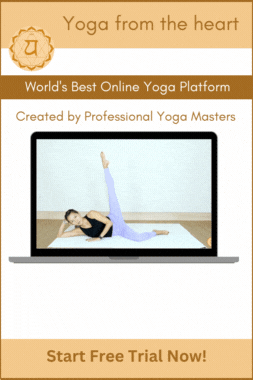Jayney Goddard is considered to be one of the world’s leading experts in the complementary medicine and natural health fields. She is the author of the global bestseller “Rewind Your Body Clock: The Complete Natural Guide to a Happier, Healthier, Younger You”, she’s a popular broadcaster, lecturer and journalist and an acknowledged thought leader and influencer in the healthcare arena.
Jayney is the recipient of the “camexpo” award for Outstanding Contribution to Complementary Medicine and she has a special interest in immunology and anti-ageing. Natural Health magazine called Jayney “The UK’s Natural Youth Guru”. Jayney bases all her natural health recommendations upon strong scientific evidence, so that you know that everything she suggests is safe – and highly effective! She is the Founder and a Fellow of The Complementary Medical Association, a Fellow of the Royal Society of Medicine and a Fellow of the Royal Society of Public Health. Asana journal’s Master Vishnu kumar interviewed jayney for this women’s special issue.
How did the interest in Complementary medicine come about in your life as a Homeopathy Practitioner? How has this changed your life?
You could say that I have had a lifelong interest in the more natural approach to health and wellness. Ever since I was a small child I was fascinated by plants as medicine and used to read as much as I could about this topic. I was totally enamoured of the countryside hedgerows here in the South of England which, I had come to learn, were such a rich source of healing herbs.
My first career was as a ballerina and having trained to join a ballet company, my career took a very surprising turn! I auditioned for an international show that was hiring ballerinas. I got the job – only to discover that the company was actually a forerunner to Cirque de Soleil. I had, quite unexpectedly, become a circus artiste. The show was very beautiful and incorporated all the arts – music, dance, theatre and of course – the circus arts. They were recruiting ballet dancers as they wanted to change from the traditional circus to a much more sophisticated and artistic version of the art form. I ended up working with the show all over the world – often in areas where there was no access to conventional medicine – and, as you’ll appreciate, we were getting injured from time to time – this was when I was exposed to every variety of traditional medicine you can imagine! What I found so extraordinary was that these so called ‘primitive’ approaches were so incredibly effective and fast-acting. I witnessed the power of homeopathy, acupuncture, jungle herbs, body work and much more, first-hand, and was completely entranced. I knew then that I wanted to return to the UK and study these incredible healing modalities. I had had the immense privilege of travelling the world and learning about so many different cultures – and their medical systems – it was an amazing time in every respect – and I know I was very lucky.
Upon returning to the UK I was fortunate to gain a place at the London College of Classical Homeopathy and spent five years studying there. I have added on various other disciplines over the years including the University of Central Lancashire’s MSc in Homeopathy, and most recently I participated in the Mind/Body Medicine Training under Dr Herbert Benson at the Benson Henry Institute at Harvard Medical School.
After finishing my homeopathy studies, I realised that an organisation needed to exist to promote excellent, professional complementary medicine to the public and the medical professional – while setting standards in the field to safe-guard patients. As a result, 28 years ago, I founded The Complementary Medical Association – The CMA, which is now the world’s leading professional body in this field. The-CMA.org.uk
How do you explain complementary medicine for a beginner who wishes to understand more about this science?
I generally like to explain that first and foremost, we work completely holistically in complementary medicine. So, compared to conventional (allopathic) medicine, which usually looks at symptoms as something ‘wrong’ which need to be suppressed and ‘divides’ the patient up into discrete parts, we look at absolutely everything that is going on with the person – even if it seems unrelated to the person’s presenting ailment. I explain about how in-depth a homeopathic case-taking is – and why we ask so many questions. When the person comes to understand why we need to know so much, they begin to really grasp the idea of just why our approach is so powerfully effective.

In general, what are the unique characteristics of complementary medicine when compared with conventional medicine?
To elaborate on the above; our approach is deeper and more thorough – we aim to discover exactly how the individual differs from any other person. We delve deep to really understand the entirety of the person’s symptoms – and their life, family, history, likes, dislikes and so much more.
In the UK, where we have a busy and very hard pressed National Health Service, one is lucky if they get to spend more than five minutes with a doctor, and during that time the doctor has so much ‘form filling’ and admin work that they often only make a cursory glance towards the patient. I know it is not their fault – but it is not a good way of practicing medicine. In contrast, in complementary medicine, we have the luxury of having much more time with the patient. We can carefully and fully observe them and listen intently to them. Very often this, in itself, is a deeply healing experience for the patient as it may be the first time that they have ever had the chance to genuinely be ‘heard’ by another non-partisan person, who comes from a position of non-judgement – as Hahnemann, the father of homeopathy, would say; “The unprejudiced observer . . .”
In complementary medicine, what is the significance of yoga and naturopathy? Any experts in this field you have interacted and worked with?
Both Yoga and Naturopathy are hugely significant in the UK and globally too of course. Most yoga in the UK is delivered as a mindful, fitness and health option. There are, of course, therapeutic yoga centres, but these are few and far between. There are many naturopaths in the UK too – who are highly trained and do an excellent job. Over the years, in my role as President of The Complementary Medical Association, I have had the privilege of working with and supporting many of the leaders across both fields.
What are the potential and boundaries of complementary medicine? Can it be a standalone method of treatment for all ailments and find the cure?
Complementary medicine (often also termed integrative medicine) is not a panacea for all illnesses, just as conventional medicine is not the solution for all aliments. As the name suggests, the idea underlying complementary medicine is that is can act alongside conventional medical approaches to ‘complement’ them. Any sensible doctor of either camp will tell you that they don’t have all the answers and they acknowledge that there is a legitimate role for both approaches. For example, if you had the misfortune to break your leg, you’d definitely want to go to the hospital and get the bone set properly, but then, once you know it is set correctly, you might want to go to the homeopath to get a remedy to dramatically speed up the healing. Similarly, there is no substitute for insulin for a Type 1 diabetic, however, by implementing the types of lifestyle interventions we offer in complementary medicine most, if not all, of the disabling sequelae of poorly-controlled diabetes can be avoided and the person can go on to live a happy, healthy, long life.
Is complementary medicine accessible for all social classes of people? How and where can people find expert practitioners if they would like to seek healing from this science?
Complementary Medicine is accessible to all – there are brilliant practitioners world-wide who can offer the most outstanding levels of treatment and health support. It is fairly easy to find practitioners of excellence, often by ‘word of mouth’ or on online platforms such as The Complementary Medical Association (The CMA). While we are based in The UK, we are truly global in nature and growing rapidly still, year after year.
If one is interested in pursuing a complementary medicine career path, how should they first start? What type of qualification can they seek to practice complementary medicine?
It is imperative that anyone who wants to train to become a complementary medical practitioner makes sure that they seek out a training school or college that is offering a truly excellent level of training. Each discipline within the field will have different types of training and exams – ranging from a diploma – right the way through to MSc level in the UK, to doctorate (the UK MSc equivalent) in other countries. For listings of established accredited colleges and schools please see The-CMA.org.uk

As the President of The Complementary Medical Association, what are the future opportunities for complementary medicine practitioners?
In my role as President of The CMA, I have overseen the career development of literally tens of thousands of practitioners, since founding the organisation 28 years ago. There is a growing realisation among governments that conventional medicine doesn’t have all the answers to public health issues – and that a Lifestyle Medicine approach is badly needed. Most, if not all, the chronic ailments that plague society are chronic diseases that have poor lifestyle choices and living conditions as their underlying cause. Thankfully, those in charge at governmental level are starting to realise this and are beginning to really appreciate the contribution that complementary medical practitioners make to the health of the nation. For example, during our lockdowns in the UK, our Members were allowed to return to work as they were relieving the burden off NHS staff, as they were helping the public by offering treatments for aliments relating to pain, mental/emotional health and more. We are delighted to see that, world-wide, the understanding of complementary medicine is growing.
What are the current treatment methods that are breakthroughs in complementary medicine?
Although not a breakthrough as such, I would have to say that the concept known as “Lifestyle Medicine” is gaining traction around the world. As outlined above, this is due to governments realising the underlying causes of expensive-to-treat and complex lifestyle-related chronic diseases. Interestingly, this approach incorporates many complementary medical disciplines – think of it as a ‘catch-all’ phrase that encapsulates the work we do in this field.
Any advice for complementary medicine practitioners on how to establish themselves in this path and strengthen this system?
Yes, depending on where you are located, it is easy enough to locate excellent training schools – this is the first step. Once qualified, you then need to grow your practice. This takes time, diligence and patience. I recognise that many people enter to field as they have a deep desire to help people and this often means that they are not entrepreneurial in nature, or necessarily experienced in running a business. To this end I teach weekly practice development classes, online and make them available to everyone – completely free of charge. You can find the recordings of these classes online at The Complementary Medical Association’s YouTube channel. I am just about to launch a course on how to get into complementary medicine and what to expect, as I really want to help people get a good understanding of what this rewarding field has to offer and help them to get the right training to get their career off the ground. It is important to join The CMA as soon as possible – we accept students and offer them huge support while they are still studying and then upon graduation, they can apply to join us as Fully Qualified Practitioners – with the MCMA designation – Member of The Complementary Medical Association. This can all be done at The CMA website: The-CMA.org.uk


















 Other
Other